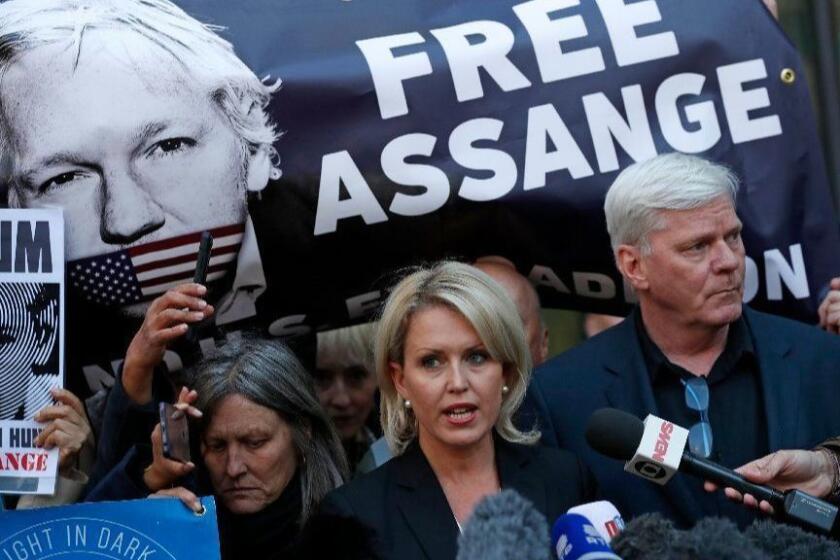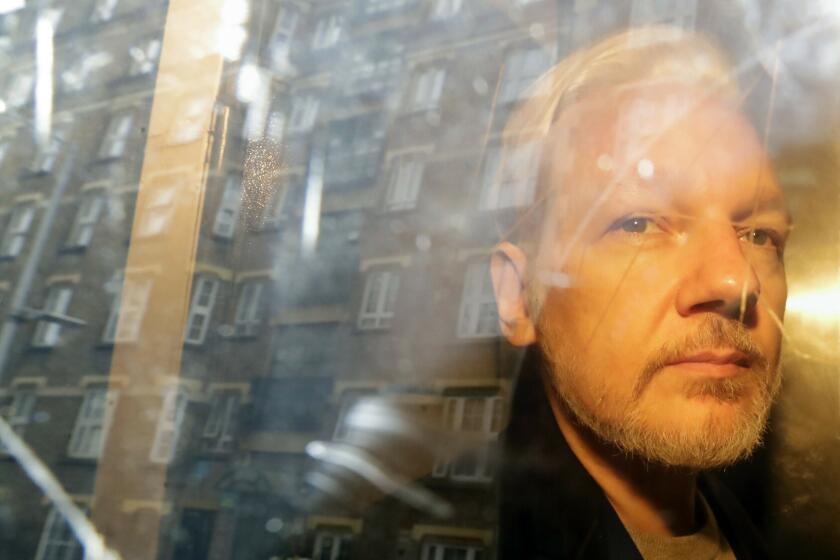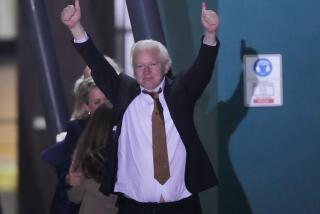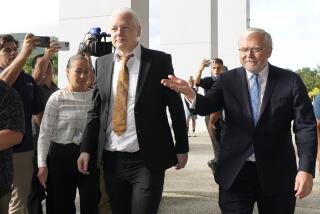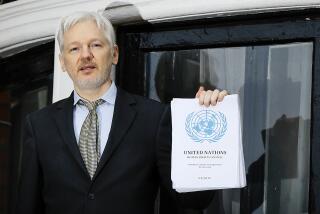WikiLeaks founder Julian Assange is denied bail in Britain
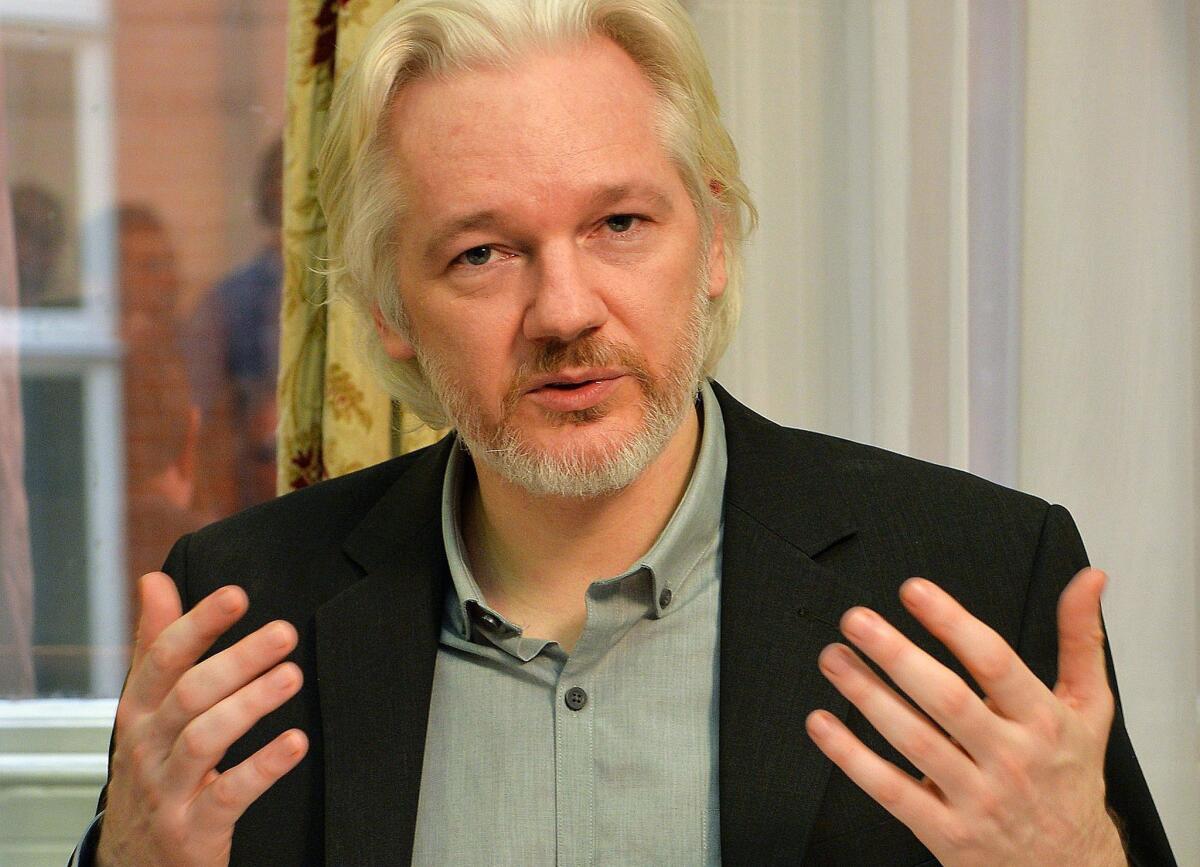
LONDON — A British judge denied bail Wednesday to WikiLeaks founder Julian Assange, who has been jailed in the U.K. since 2019 as he fights extradition to the United States.
District Judge Vanessa Baraitser ordered Assange to remain in prison while the courts consider an appeal by U.S. authorities against a decision — also by Baraitser — not to extradite him.
On Monday, the judge rejected an American request to send Assange to the U.S. to face espionage charges over WikiLeaks’ publication of secret military documents a decade ago. She denied extradition on mental health grounds, saying the 49-year-old Australian was likely to kill himself if he were held under harsh U.S. prison conditions.
But regarding bail, the judge said Wednesday that Assange had “an incentive to abscond” and that there was a good chance he would fail to return to court if freed.
The ruling means that Assange must remain in London’s high-security Belmarsh Prison, where he has been held since April 2019, when he was arrested after skipping bail in connection with a separate legal battle seven years earlier.
Lawyers for the U.S. government have appealed the decision not to extradite Assange, and the case will be heard by Britain’s High Court at an unspecified date.
With his shock of Warhol-white hair, black leather jacket and self-proclaimed mission to lay bare official malfeasance, Australian-born Julian Assange burst onto the world stage more than a decade ago with his creation of the WikiLeaks website.
Clair Dobbin, a British lawyer acting for the U.S., said Assange had shown he would go “to almost any length” to avoid extradition, and it was likely he would flee if granted bail.
She noted that Assange had spent seven years inside the Ecuadorian Embassy in London to evade a Swedish extradition request in 2012. Dobbin said Assange had the “resources, abilities and sheer wherewithal” to try to avoid justice once again, and noted that Mexico has said it would offer him asylum.
But Assange’s lawyer, Edward Fitzgerald, said the judge’s decision to refuse extradition “massively reduces” any motivation to abscond.
“Mr. Assange has every reason to stay in this jurisdiction, where he has the protection of the rule of law and this court’s decision,” he said.
A new Justice Department indictment says WikiLeaks founder Julian Assange sought to recruit hackers at conferences in Europe and Asia to provide his anti-secrecy website with classified information.
Fitzgerald also said Assange would be safer at home with his partner, Stella Moris, and their two young sons — fathered while he was in the embassy — than in prison, where there is “a very grave crisis of COVID.”
But the judge ruled that Assange still had a strong motive to flee.
“As far as Mr. Assange is concerned, this case has not yet been won,” she said. “Mr. Assange still has an incentive to abscond from these as-yet-unresolved proceedings.”
U.S. prosecutors have indicted Assange on 17 espionage charges and one charge of computer misuse over WikiLeaks’ publication of thousands of leaked military and diplomatic documents. The charges carry a maximum sentence of 175 years in prison.
News Alerts
Get breaking news, investigations, analysis and more signature journalism from the Los Angeles Times in your inbox.
You may occasionally receive promotional content from the Los Angeles Times.
U.S. prosecutors say Assange unlawfully helped U.S. Army intelligence analyst Chelsea Manning steal classified diplomatic cables and military files that were later published by WikiLeaks.
Lawyers for Assange argue that he was acting as a journalist and is entitled to 1st Amendment protections of freedom of speech for publishing documents that exposed U.S. military wrongdoing in Iraq and Afghanistan.
The judge rejected that argument in her extradition ruling, saying Assange’s actions, if proven, would amount to offenses “that would not be protected by his right to freedom of speech.” She also said that the U.S. judicial system would give him a fair trial.
More to Read
Sign up for Essential California
The most important California stories and recommendations in your inbox every morning.
You may occasionally receive promotional content from the Los Angeles Times.
